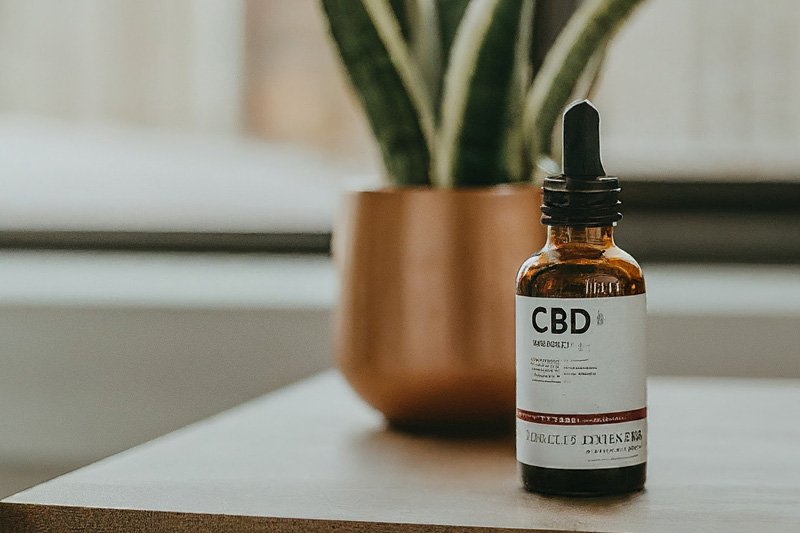Table of Contents

As you consider trying CBD to relieve pain or reduce anxiety, you must examine the science behind its purported benefits. Researchers have discovered the human endocannabinoid system and how it interacts with CBD, providing anti-inflammatory effects that may relieve conditions like arthritis. However, quality CBD products can be costly. This article explores multiple scientific studies on CBD, analyzing evidence for its effectiveness and whether cheaper options like omega-3 supplements may offer comparable advantages. Examining the research allows you to make an informed decision about using CBD.
What Is CBD Oil and How Does It Work?
Cannabidiol or CBD is one of over 100 chemical compounds found in the cannabis plant. CBD oil is non-psychoactive, meaning it does not produce the “high” associated with tetrahydrocannabinol or THC. Instead, CBD interacts with your body’s endocannabinoid system, which helps regulate sleep, appetite, pain, and immune system functions.
The Endocannabinoid System
The endocannabinoid system consists of cannabinoid receptors, endocannabinoids, and enzymes that produce and break down endocannabinoids. CBD influences this system by interacting with cannabinoid receptors like CB1 and CB2. These receptors are found throughout the body, including the central nervous system and immune cells. By influencing the endocannabinoid system, CBD may provide relief from chronic pain, reduce inflammation, and help maintain homeostasis.
Potential Health Benefits of CBD Oil
Several studies have shown CBD may have potential health benefits, especially as an anti-inflammatory and analgesic. A review in the European Journal of Pain found CBD oil reduced chronic pain and inflammation in some patients. CBD may also decrease anxiety, improve sleep, and provide relief from insomnia. However, more research is still needed to confirm these potential benefits, especially long-term effects.
While CBD shows promise, consumers should do thorough research to determine if the potential benefits justify the cost. Less expensive options may provide similar anti-inflammatory and pain-relieving effects. As with any supplement, individuals should discuss CBD use with their doctor to determine if it is right and safe for them based on their unique health conditions and medication regimen.
The Science Behind CBD’s Anti-Inflammatory Effects
As shown in numerous studies, CBD has significant anti-inflammatory properties. According to a 2010 research review, CBD acts as an anti-inflammatory agent by activating cannabinoid receptors (CB1 and CB2) in the endocannabinoid system. This signaling reduces cytokine production and influences the migration of macrophages and other immune cells involved in the inflammatory response.
Reduced Cytokine Production
Cytokines are small proteins released by cells that act as chemical messengers in the immune system. Some cytokines trigger inflammation. Studies show CBD oil decreases the production and release of pro-inflammatory cytokines such as interleukin-6 (IL-6), interleukin 1-beta (IL-1β), and tumor necrosis factor alpha (TNFα) from activated macrophages and microglia. By reducing cytokine production, CBD helps prevent the initiation and progression of inflammation.
Changed Immune Cell Migration
CBD also inhibits the migration of macrophages and neutrophils to sites of injury or inflammation. Macrophages and neutrophils are white blood cells that act as first responders at inflammation sites. By slowing their migration, CBD reduces accumulation of these cells in inflamed tissues. Fewer immune cells accumulating means less inflammation and tissue damage.
In summary, CBD’s ability to reduce cytokine production and alter immune cell migration gives it substantial anti-inflammatory effects. While more research is still needed, existing studies strongly suggest CBD’s potential as an anti-inflammatory supplement and support its use for inflammatory conditions. However, consumers should evaluate if the benefits of CBD justify its high cost before using it as a supplement.
Can CBD Oil Improve Sleep? The Research So Far
According to several studies, CBD may have properties that could help improve sleep. CBD is one of over 100 chemical compounds found in the cannabis plant known as cannabinoids. Unlike tetrahydrocannabinol (THC), CBD does not produce a “high” or intoxication. Instead, some research shows CBD may help reduce anxiety and pain, two conditions that can contribute to sleep difficulties.
Reduced Anxiety
CBD interacts with receptors in the brain involved in regulating mood and stress levels. A 2019 study found that 300 mg of CBD reduced anxiety in 57 men. Lower anxiety levels are linked to decreased difficulty falling asleep and improved sleep quality. CBD may help alleviate anxiety-induced insomnia through its impact on the limbic and paralimbic areas of the brain that are involved in regulating stress and emotions.
Pain Relief
CBD is also thought to have anti-inflammatory and pain-relieving effects that could improve sleep. A 2020 review of clinical trials found that CBD reduced chronic pain in some patients. Less pain can lead to improved sleep quality and duration. The pain-relieving impacts of CBD may be due to its interactions with various neurotransmitter receptors in the brain, especially opioid and serotonin receptors. By influencing these receptors, CBD may help block pain signals and increase pain tolerance.
While more research is still needed, CBD shows promise as a natural sleep aid for some people. If anxiety, pain, or other conditions are disrupting your sleep, CBD may help you get the rest you need. However, CBD can cause side effects like diarrhea, fatigue, and irritability in some individuals. You should always talk to your doctor before using any supplements to improve your sleep.
CBD for Overall Health – What the Evidence Shows
CBD as an Anti-Inflammatory
CBD Oil has been shown to have anti-inflammatory effects in several studies. According to a 2020 review in Cannabis and Cannabinoid Research, CBD acts on several biological targets involved in inflammation, including cytokines, adhesion molecules, and nuclear factor kappa B (NF-κB). By inhibiting these targets, CBD can reduce inflammation in the body and provide relief from inflammatory conditions.
CBD for Pain and Anxiety Relief
CBD Oil also acts on the endocannabinoid system in the body, which helps regulate pain, stress, sleep, and other functions. According to a review in Frontiers in Pharmacology, CBD may help reduce both acute and chronic pain by interacting with cannabinoid receptors and modulating neurotransmitter activity. CBD may also help reduce symptoms of anxiety disorders, such as social anxiety disorder and post-traumatic stress disorder. A 2019 study found that 57 men who took CBD oil 90 minutes before a simulated public speaking test experienced significantly less anxiety and discomfort during their speeches.
Safety and Side Effects
CBD Oil is considered a safe compound with a good safety profile, especially when compared to other cannabinoids like THC. However, some potential side effects have been reported, including fatigue, diarrhea, changes in appetite and mood. CBD can also interact with certain medications, so you should always talk to your doctor before using CBD products. In rare cases, high doses of CBD may cause liver damage, so you should follow the dosage instructions carefully and only use CBD under medical supervision.
While the research on CBD is promising, more high-quality human studies are still needed to substantiate many of the touted benefits. The retail cost of CBD products also varies widely and may be prohibitively expensive for some. Less expensive alternatives with similar anti-inflammatory and soothing effects include turmeric, omega-3 fatty acids, and chamomile tea. Used under medical guidance, however, CBD shows potential for helping to maintain health and improve well-being.
Conclusion
In closing, the science behind CBD Oil indicates it does provide certain benefits like reducing inflammation, but more research is still needed to fully validate all the claims made about it. The retail cost of CBD products can be high, so consumers should evaluate if it’s truly worth the price for their situation or if more affordable natural alternatives like turmeric or omega-3s may offer comparable advantages.
Always consult your doctor before trying CBD, especially if taking other medications. While CBD oil shows promise for some, the jury is still out on whether it lives up to all the hype surrounding this trendy supplement. Carefully weigh the facts before buying into the CBD craze.
More on CBD in Spinfuel:
Navigating the Chaos: CBD’s Role in Cultivating Inner Peace in 2024
Nano-Powered CBD Oil: Exploring Its Astounding Future With Enhanced Formulations
8 Incredible Benefits of CBD to Improve Your Health and Well-Being
Are the Benefits of Full Spectrum CBD Miraculous or a Hoax?
CBD and THC – Why CBD Doesn’t Get You High – A 2023 Perspective





